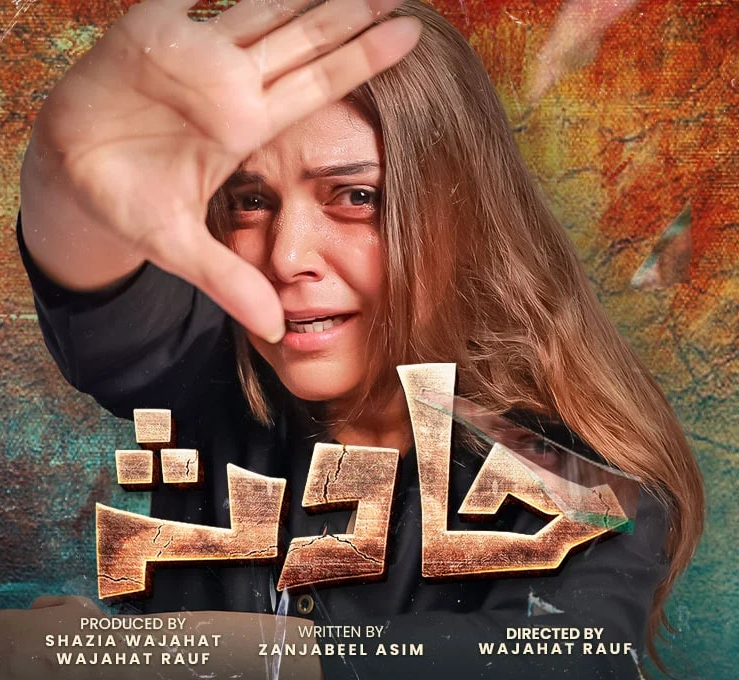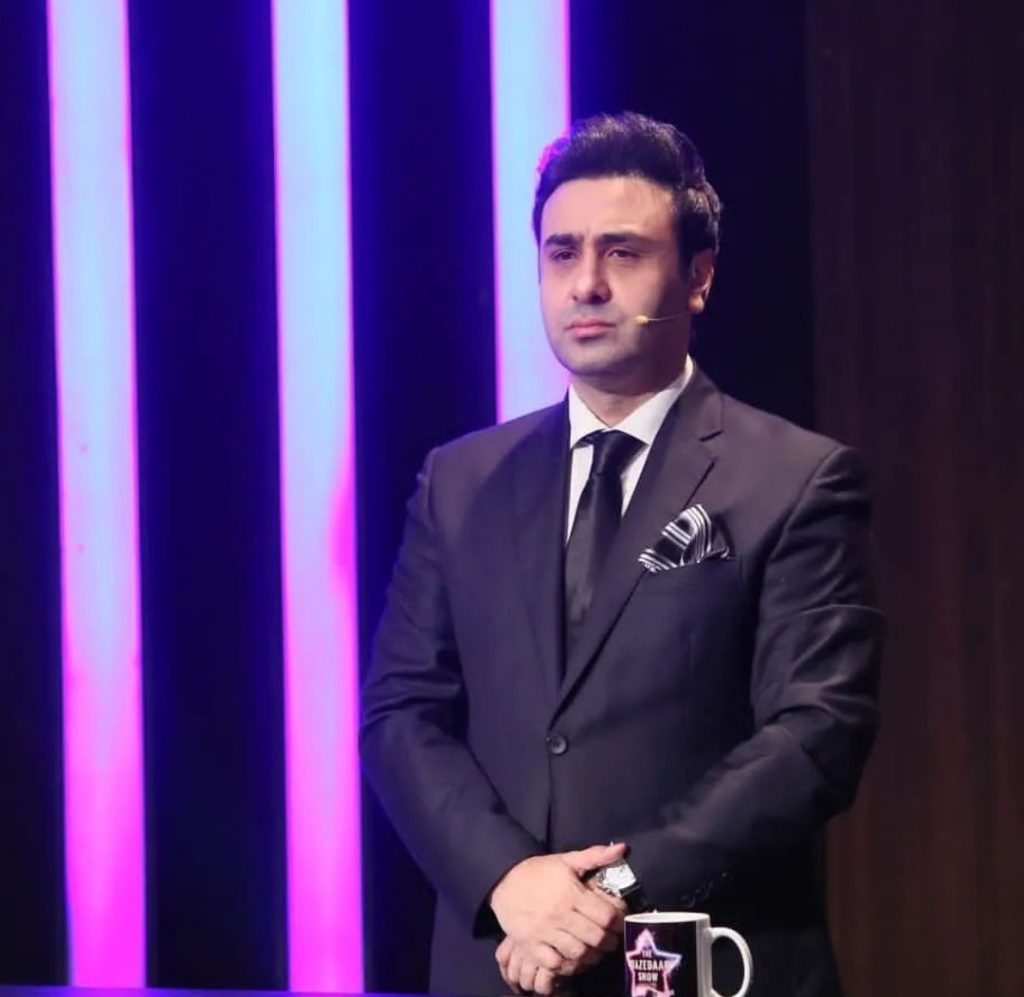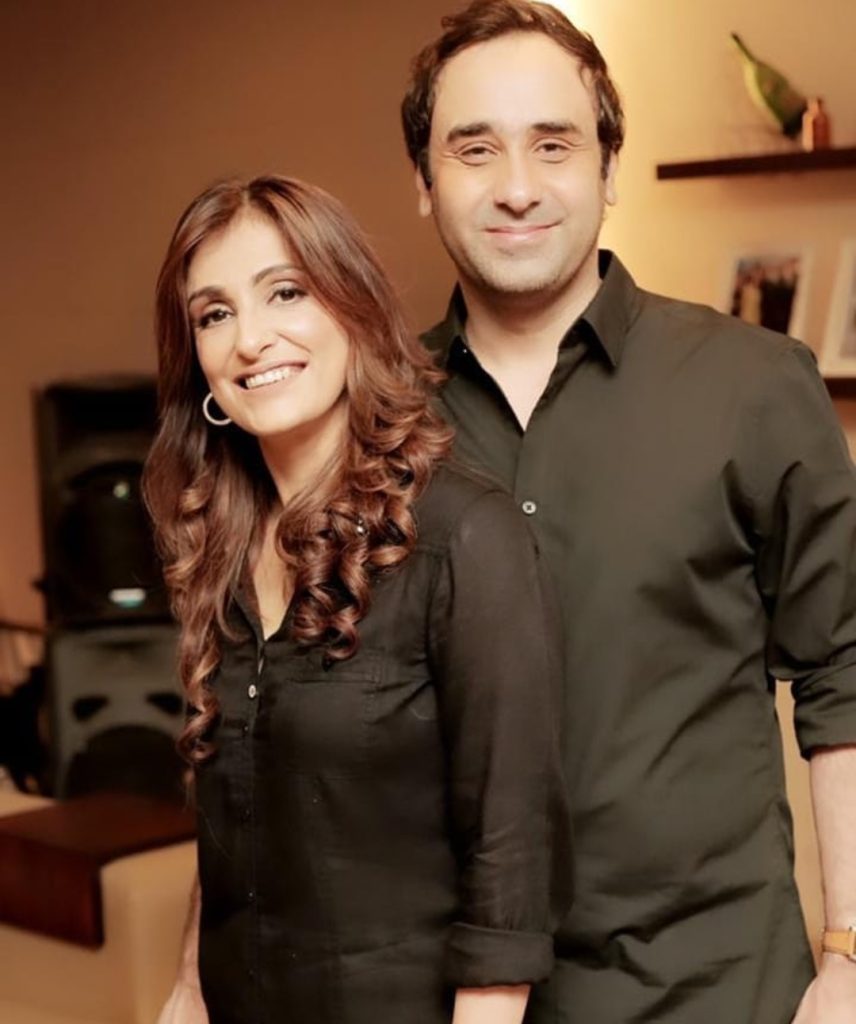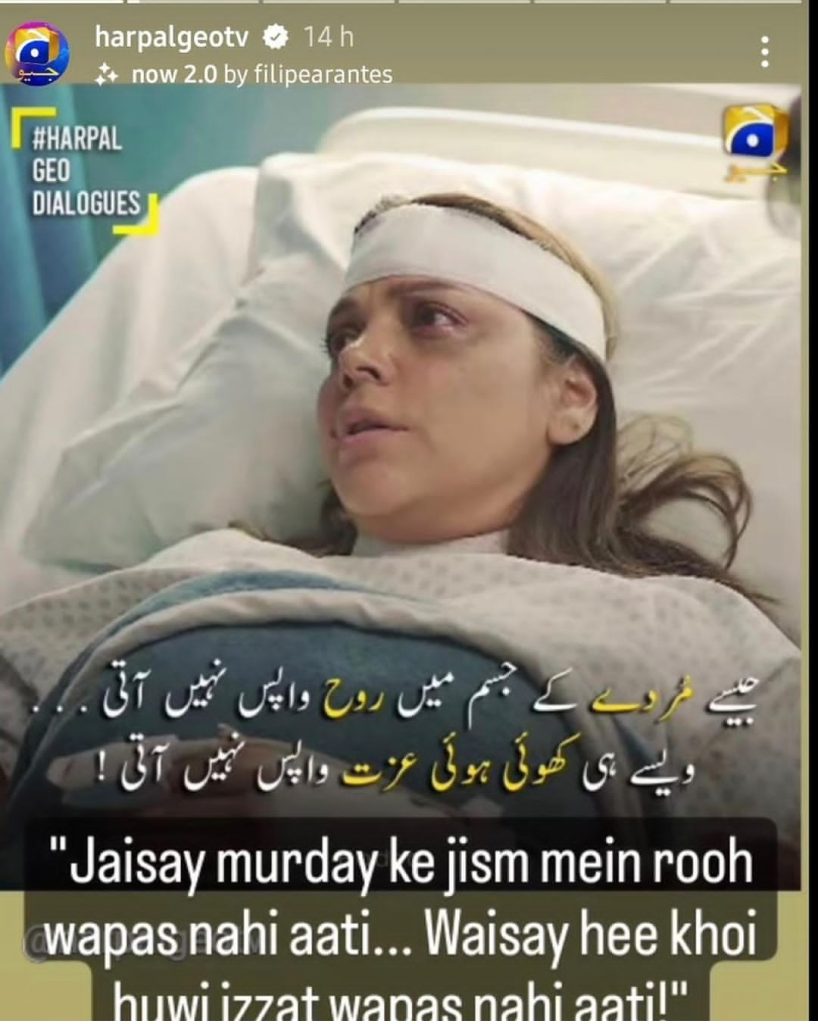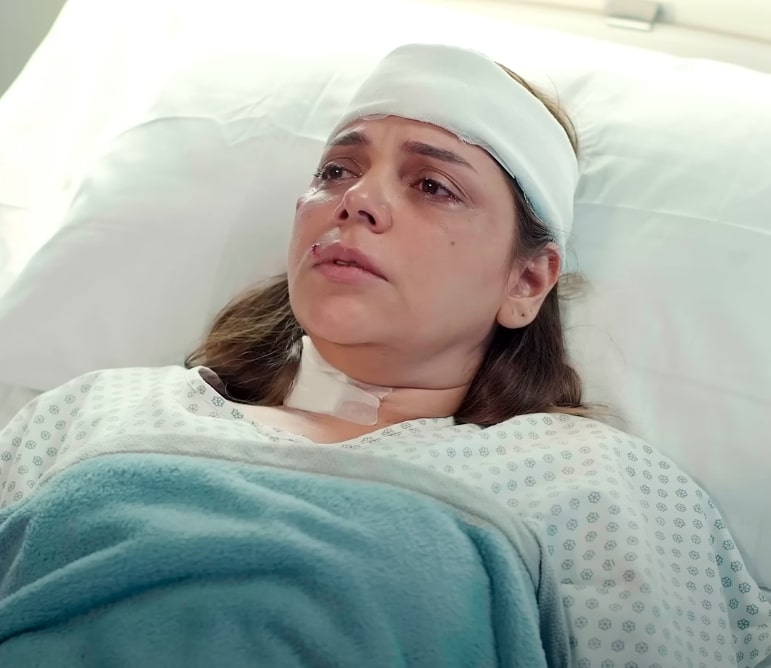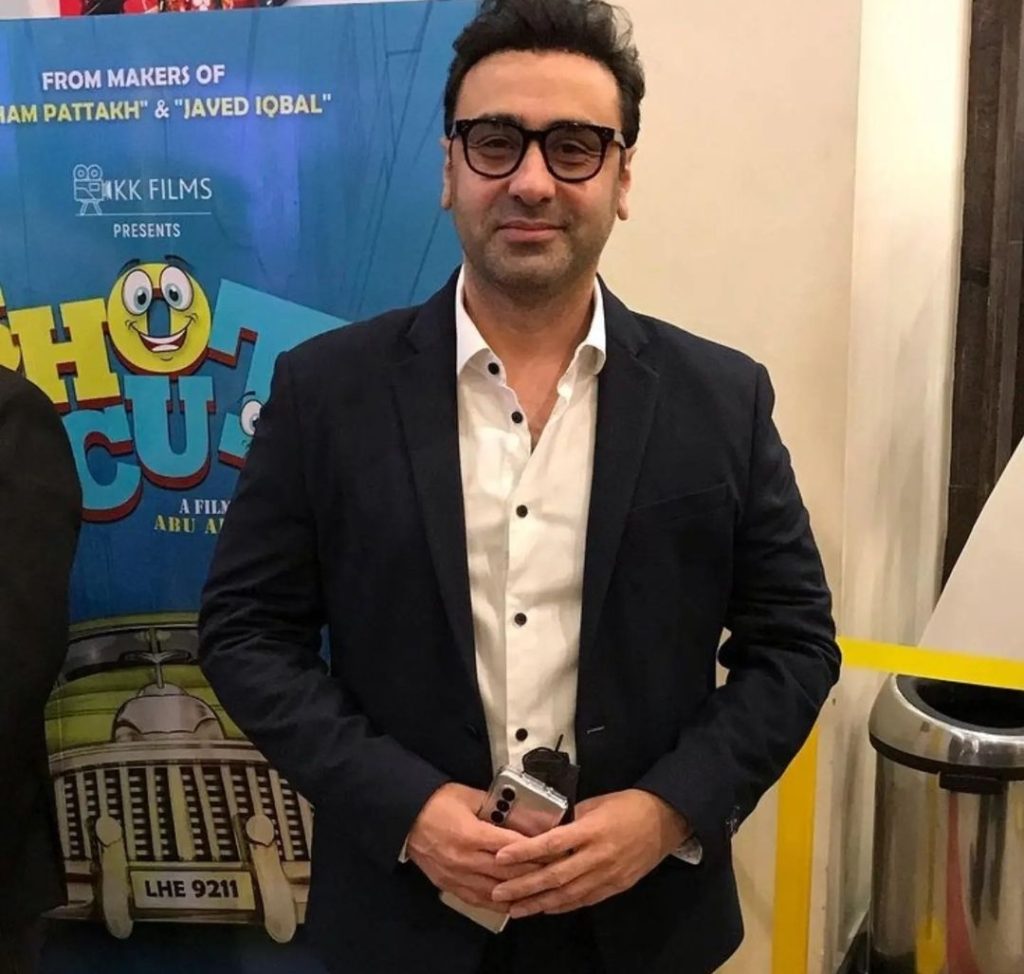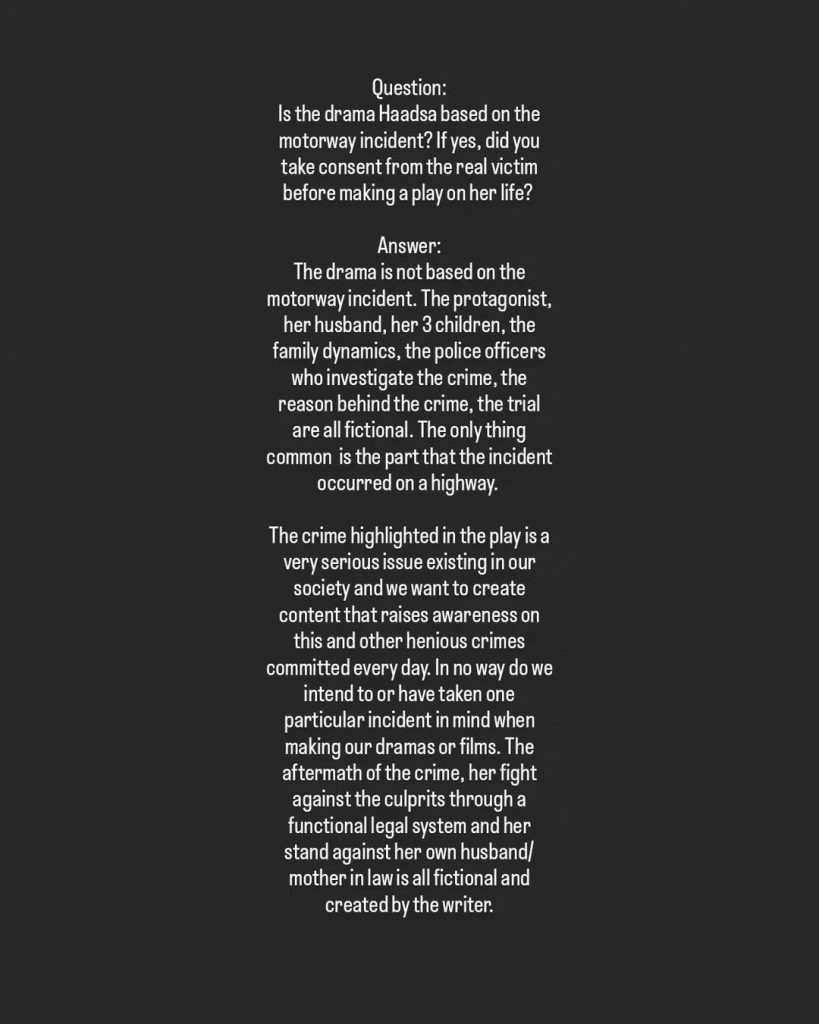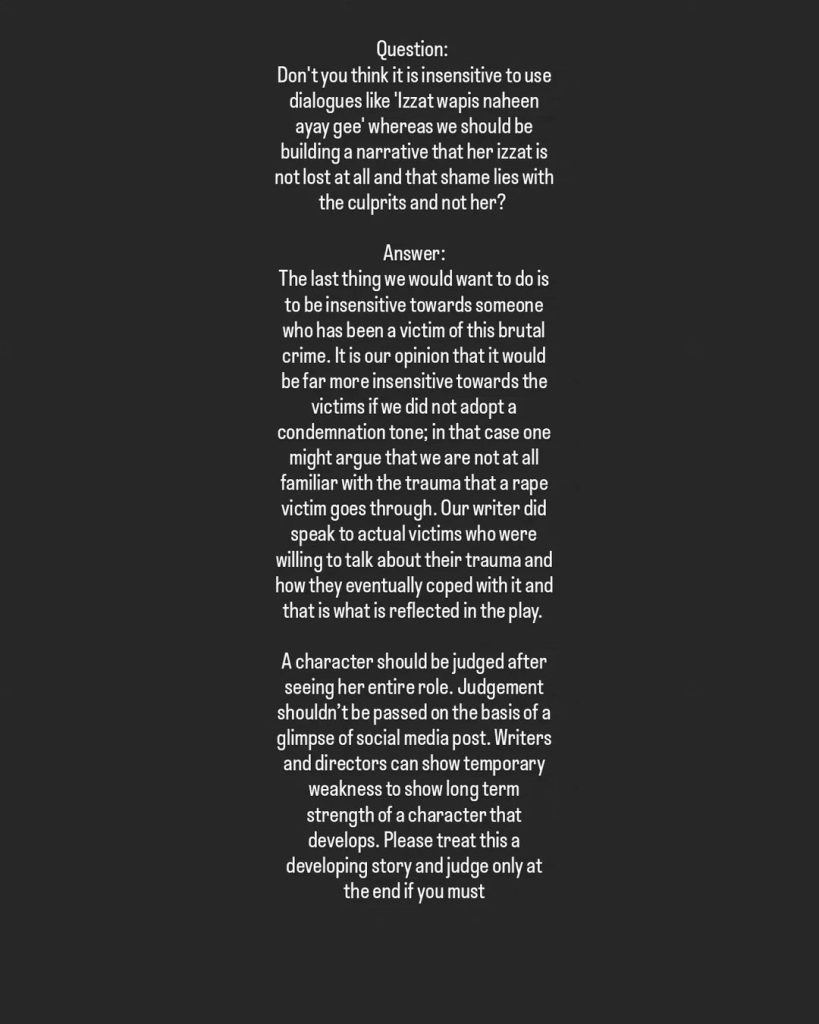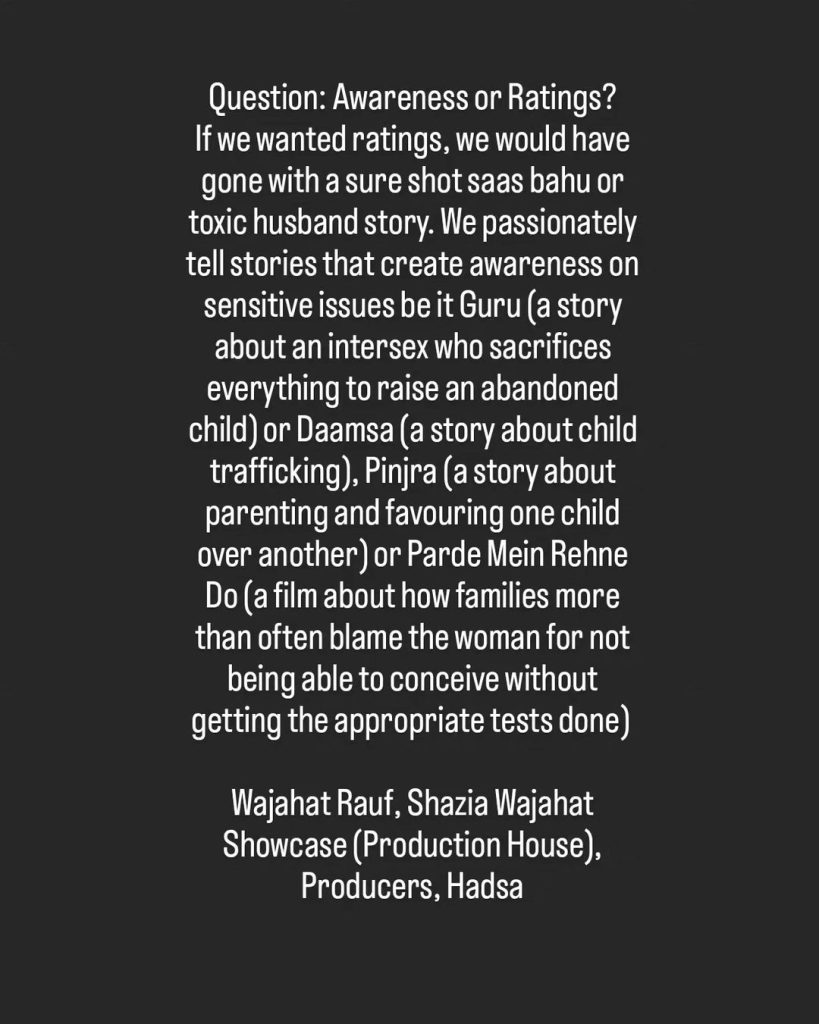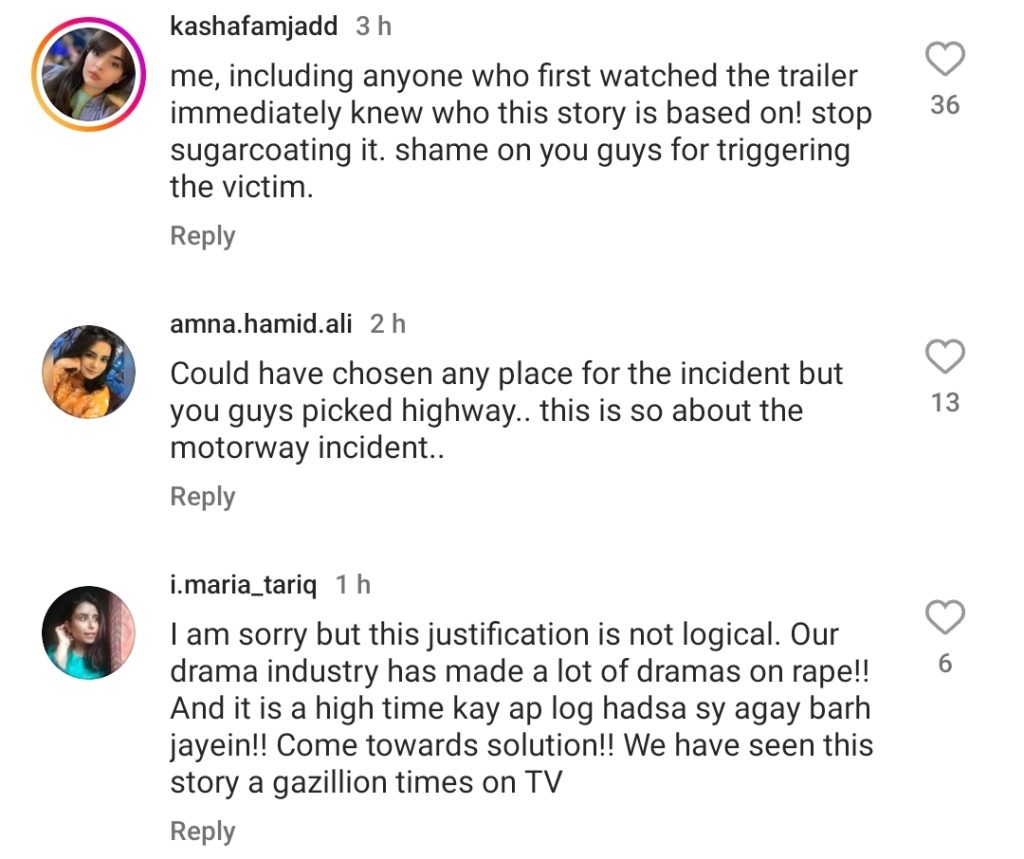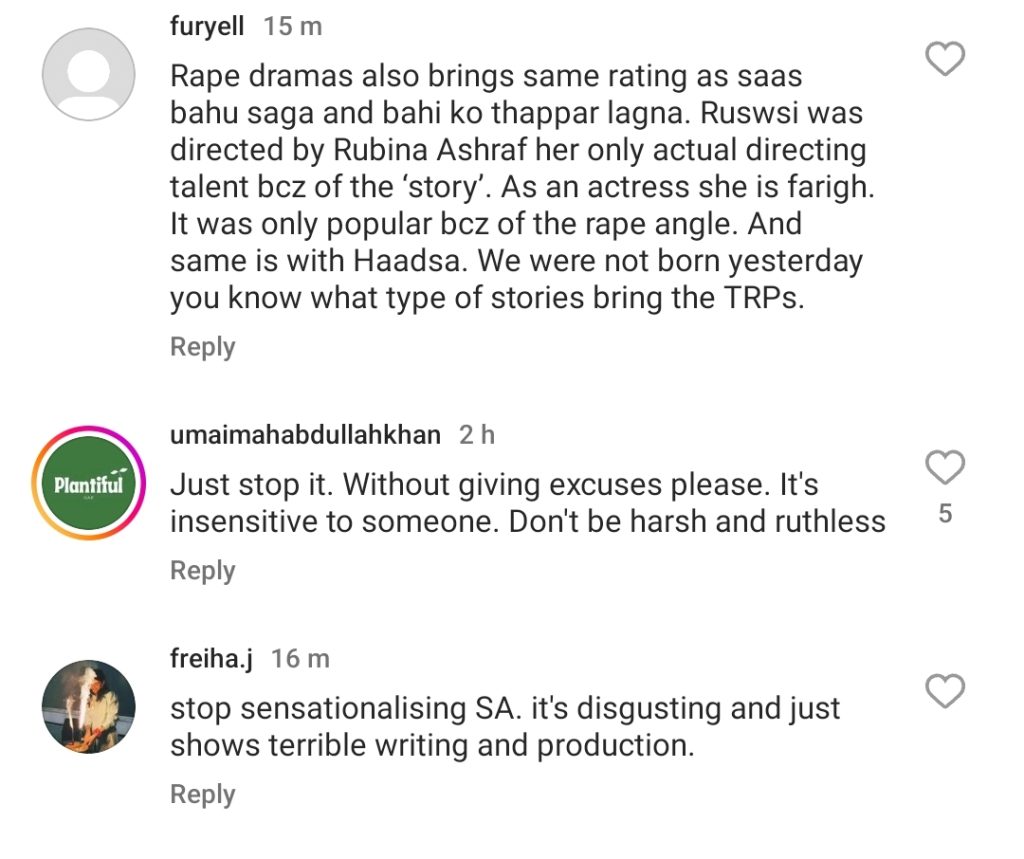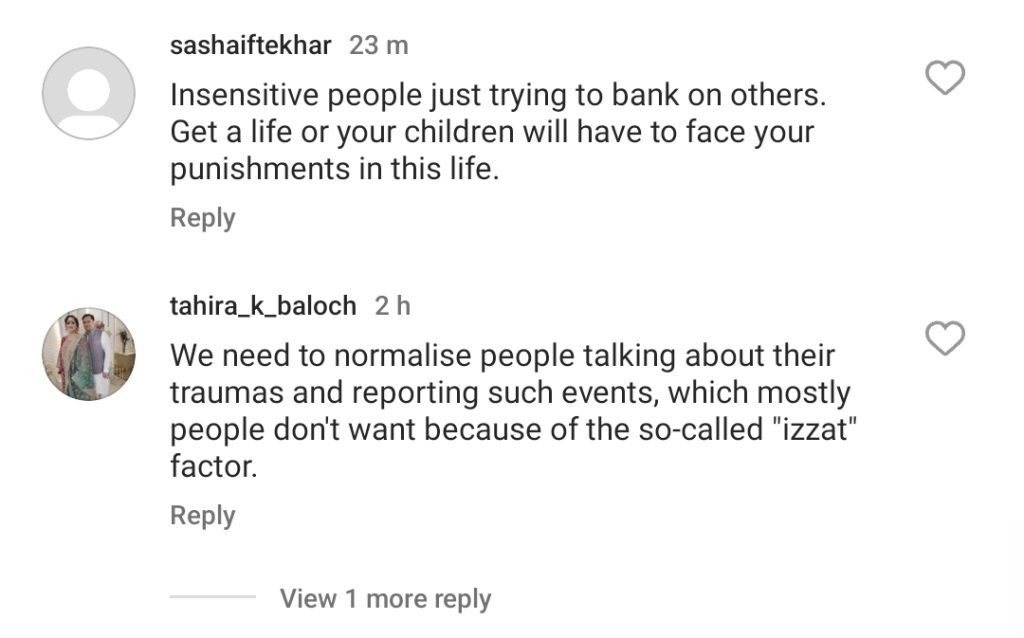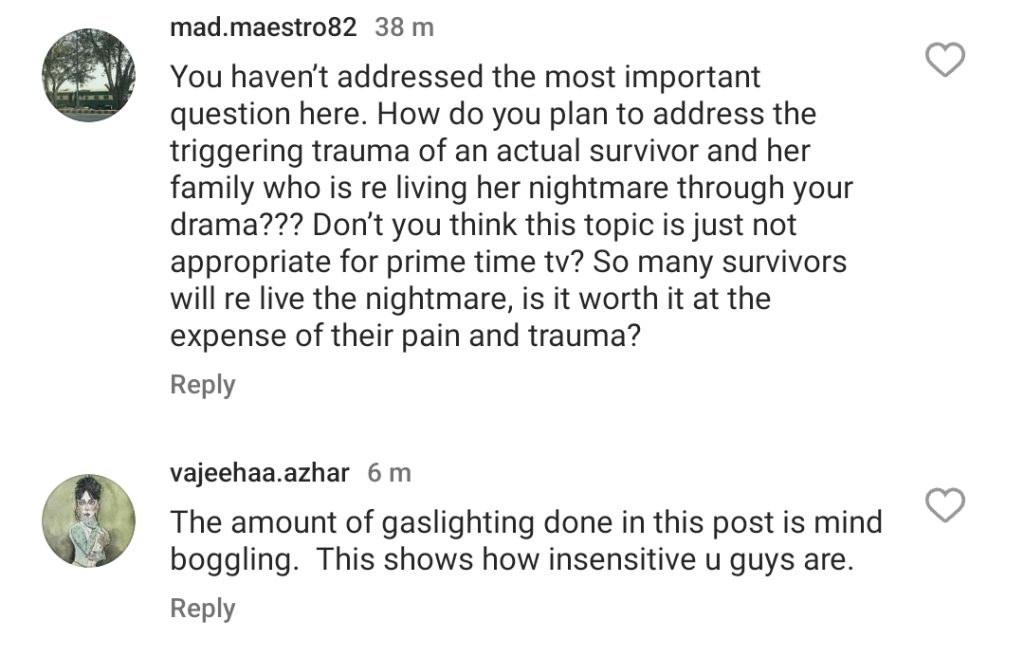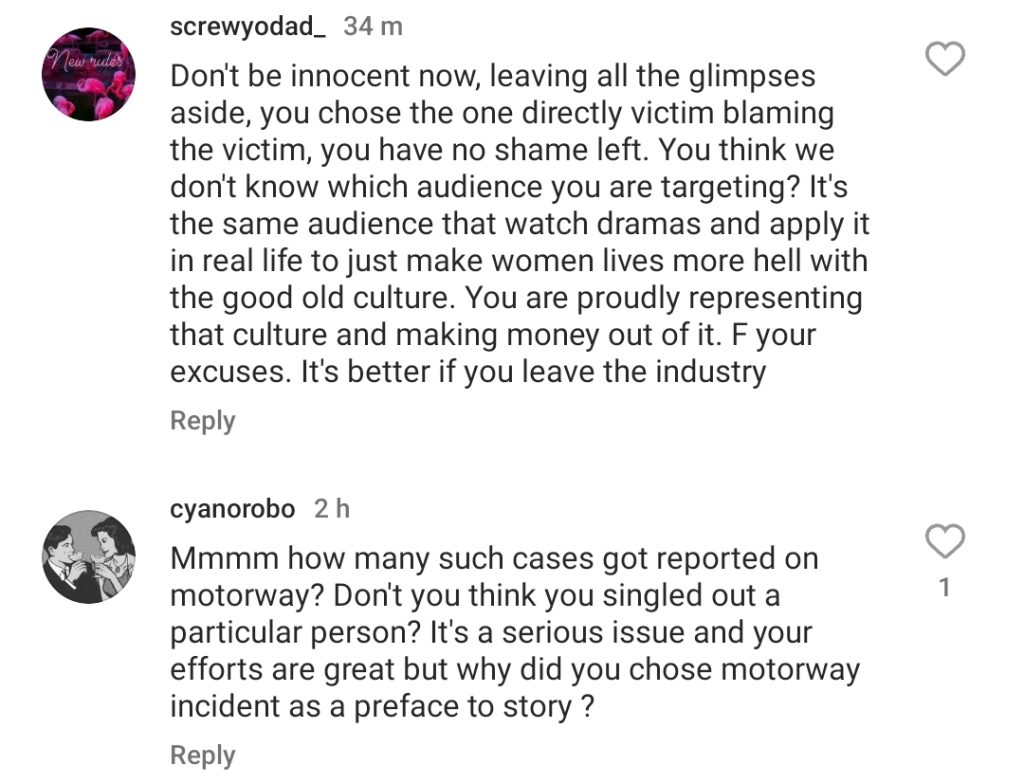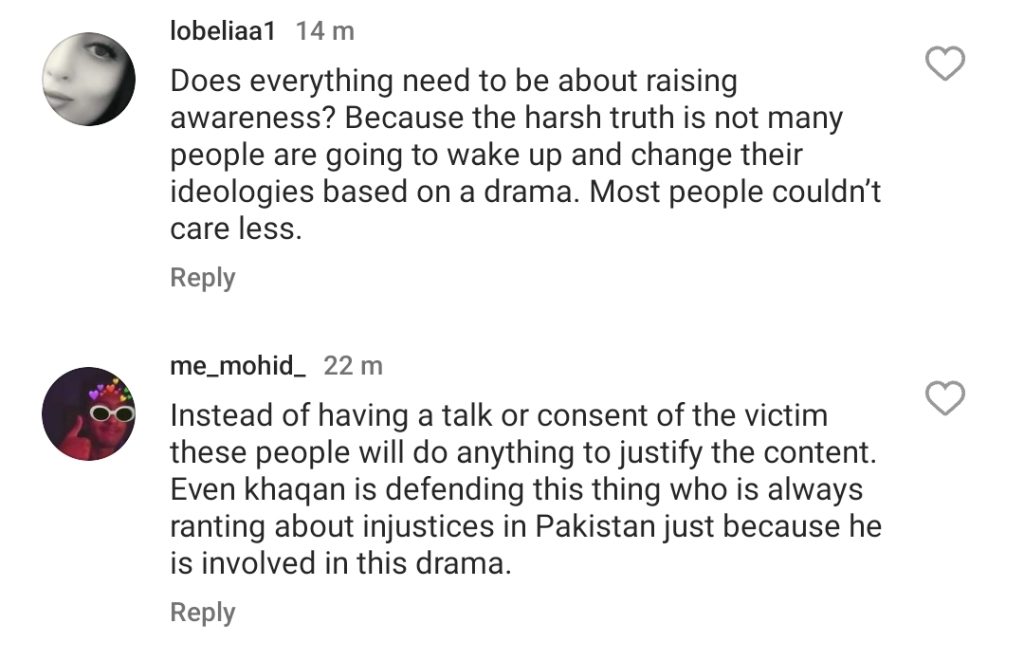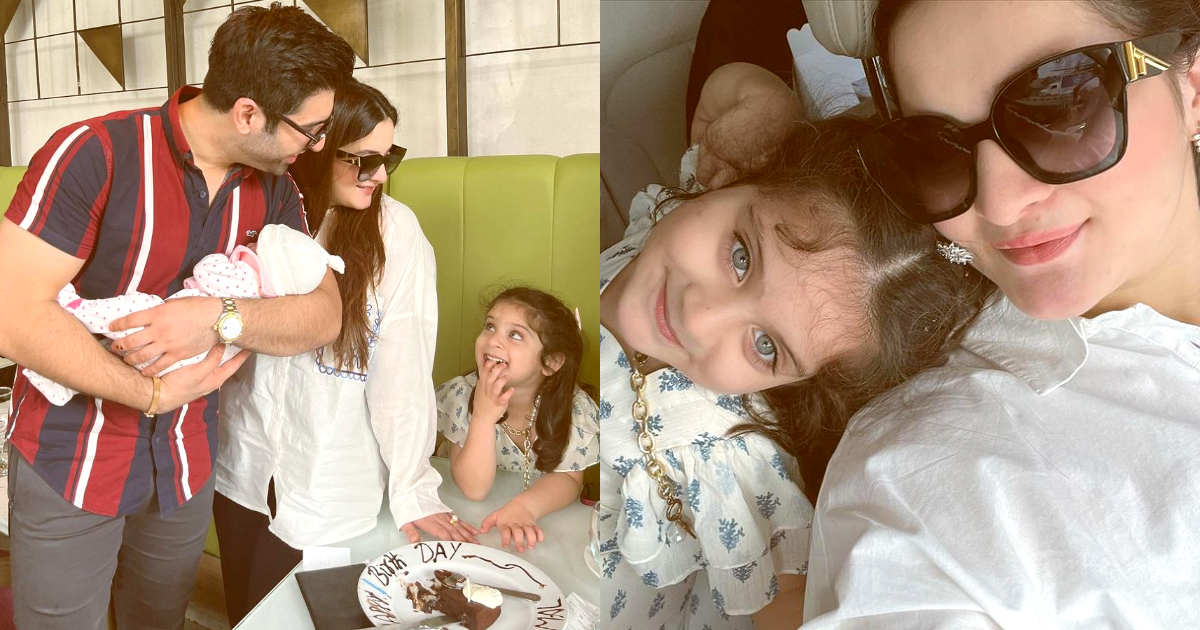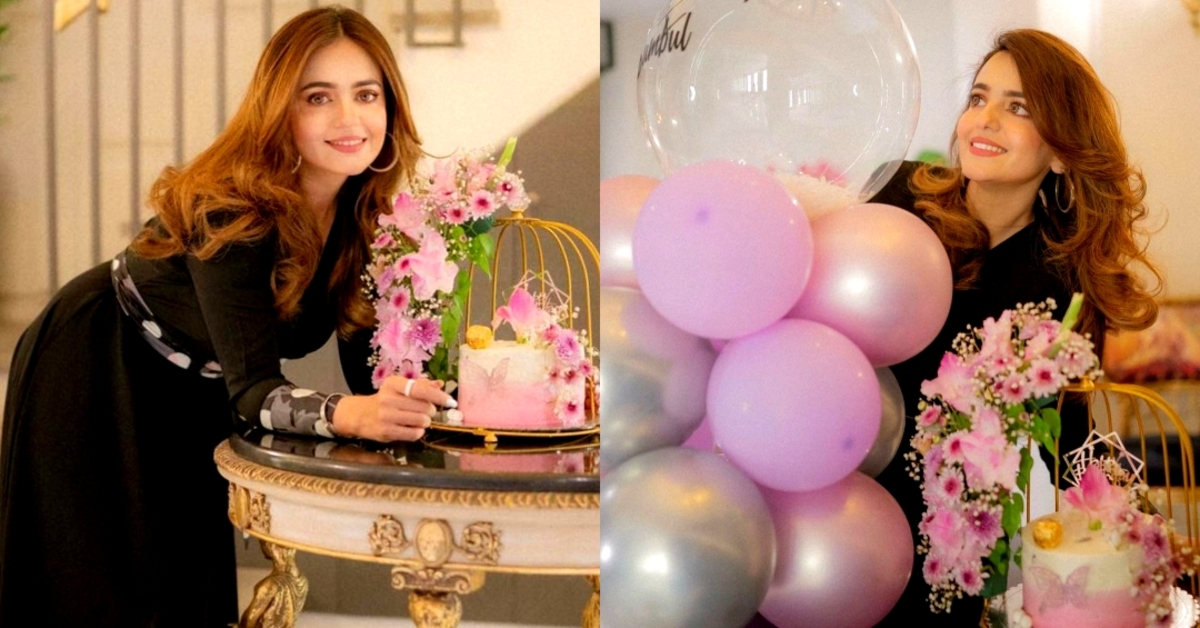Geo television network’s controversial drama Hadsa is doing rounds on social media. The drama makers are accused of hurting the sentiments of rape survivors. The main lead is played by Hadiqa Kiani, who is a rape victim in the drama. Hadsa is written by Zanjabeel Asim Shah and it is produced by Shazia Wajahat and Wajahat Rauf. Hadsa makers are facing heavy criticism for portraying the real story of rape survivor. The criticism on the drama started coming after the real-life survivor of the motorway incident bravely voiced her grief and pain. Nadia Jamil, Nadia Afgan, Fareeha Idrees and Tamkenat raised their voice for her as well. Almost every social media user called out the drama makers.
Lately, the producer Wajahat Rauf has come up with his statement about the Hadsa controversy. He has replied to the questions regarding the drama story. He has denied the accusation that the drama is based on the motorway incident. He has said that the only thing similar in the plot is the place (highway) where the incident occurred.
To the questions: Is the drama Haadsa based on the motorway incident? If yes, did you take consent from the real victim before making a play on her life?, Wajahat Rauf replied, “The drama is not based on the motorway incident. The protagonist, her husband, her 3 children, the family dynamics, the police officers who investigate the crime, the reason behind the crime, the trial are all fictional. The only thing common in the story is the part about the place (highway) where the incident occurred. The crime highlighted in the play is a very serious issue existing in our society and we want to create content that raises awareness on this and other heinous crimes committed every day. In no way do we intend to or have taken one particular incident in mind when making our dramas or films. The aftermath of the crime, her fight against the culprits through a functional legal system and her stand against her own husband/mother in law is all fictional and created by the writer.”
He also replied to the questions which were asked about the ugly portrayal of the society’s treatment with rape victim. To the question, “Don’t you think it is insensitive to use dialogues like ‘Izzat wapis naheen ayay gee’ whereas we should be building a narrative that her izzat is not lost at all and that shame lies with the culprits and not her?, Wajahat Rauf wrote, “The last thing we would want to do is to be insensitive towards someone who has been a victim of this brutal crime. It is our opinion that it would be far more insensitive towards the victims if we did not adopt a condemnation tone; in that case one might argue that we are not at all familiar with the trauma that a rape victim goes through. Our writer did speak to actual victims who were willing to talk about their trauma and how they eventually coped with it and that is what is reflected in the play. A character should be judged after seeing her entire role. Judgement shouldn’t be passed on the basis of aglimpse of social media post. Writers and directors can show temporary weakness to show long term strength of a character that develops. Please treat this as a developing story and judge only at the end if you must”.
Question about giving awareness or following ratings, he said, “If we wanted ratings, we would have gone with a sure shot saas bahu or toxic husband story. We passionately tell stories that create awareness on sensitive issues be it Guru (a story about an intersex who sacrifices everything to raise an abandoned child) or Daamsa (a story about child trafficking), Pinjra (a story about parenting and favouring one child over another) or Parde Mein Rehne Do (a film about how families more than often blame the woman for not being able to conceive without getting the appropriate tests done). Wajahat Rauf, Shazia Wajahat, Showcase (Production House), Producers, Hadsa”.
Here are the stories:
Wajahat Rauf’s long statements ignited more criticism, many social media users said that his response is insensitive:


